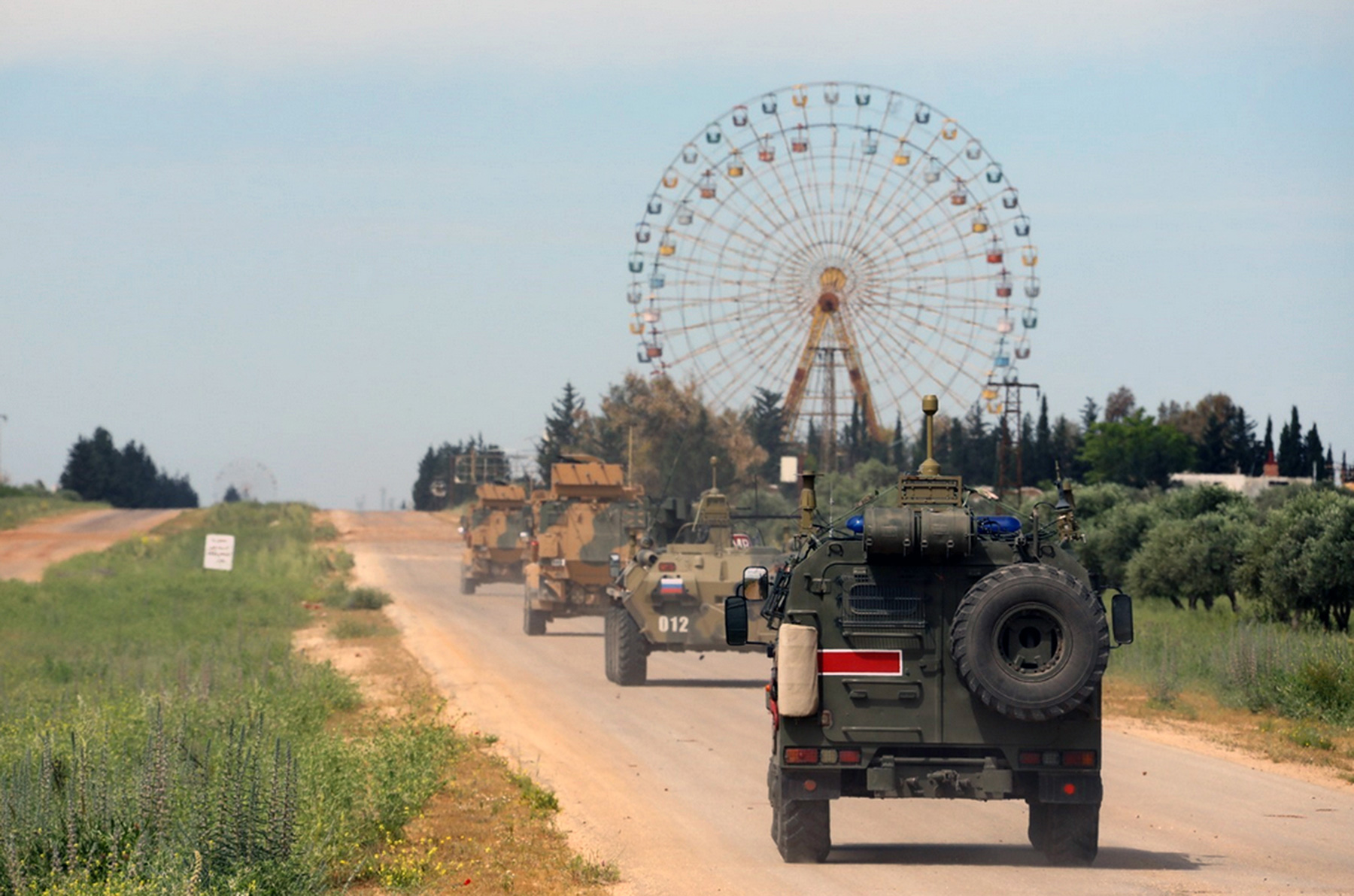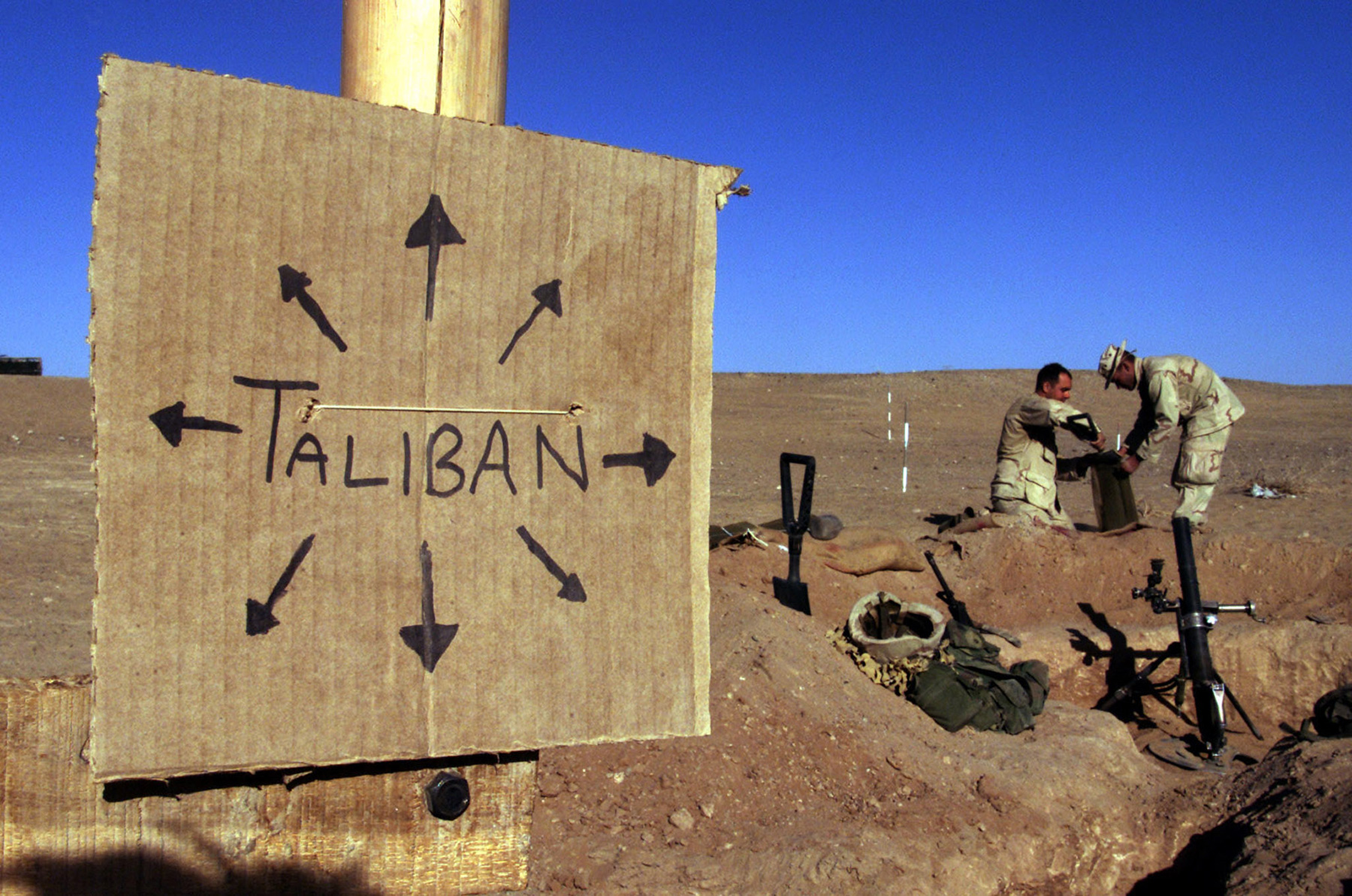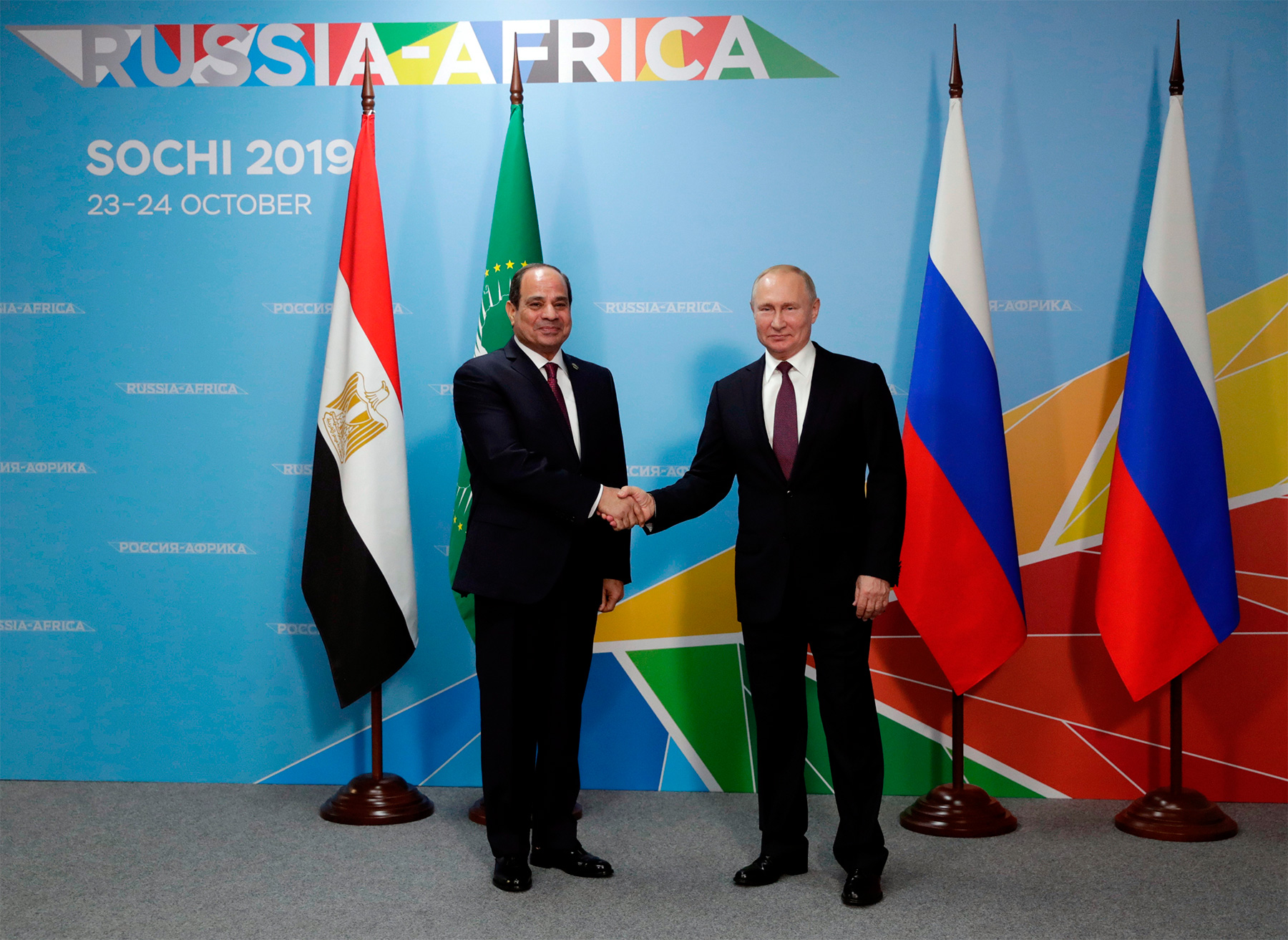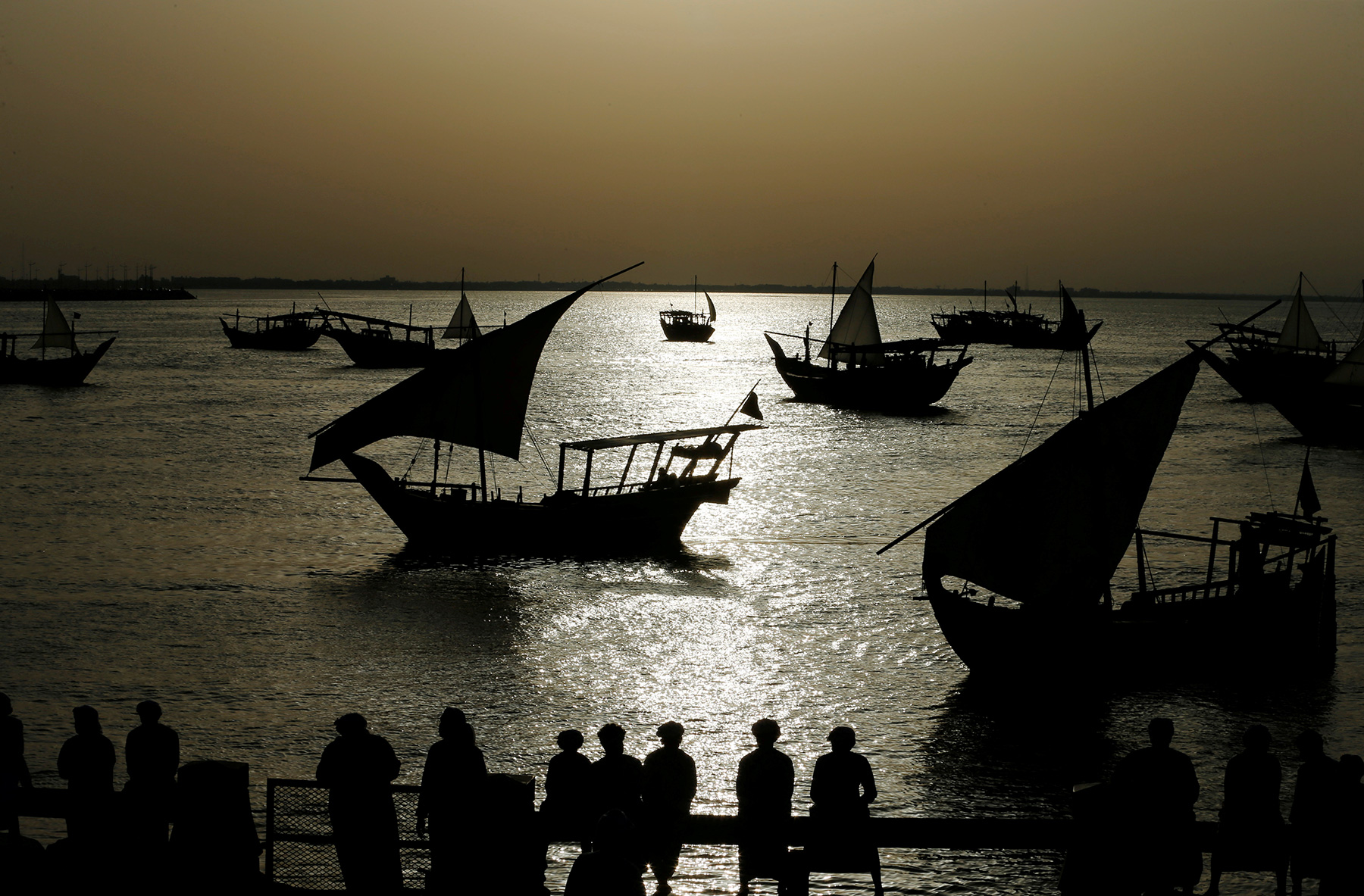(This is the second and final part of the author’s article series on this topic. The first one can be read here, and it is recommended to review it before the present piece).
Russia’s “Ummah Pivot”, or its post-2014 comprehensive engagement with the many Muslim-majority countries along its southern periphery and beyond, comprises one of the most important pillars of its contemporary grand strategic balancing act between East and West. The Southern vector of its diplomacy prevents any zero-sum choice between East and West by presenting the Eurasian Great Power with a much-needed third option, which in turn can be leveraged to improve its negotiating potential with those aforementioned two regions of Eurasia. The first part of the article series elaborated on the geostrategic situation in North Africa, the Levant, the Gulf, the South Caucasus, Iran, Central Asia, and South Asia, while the present piece is more focused on Russia’s opportunities in these regions and narrative engagement with them.
North Africa: Keeping the Spotlight on Turkish Activity
- Russia should emphasize the need for a pragmatic compromise to the Libyan Civil War, while also highlighting the trends of Arab unity and growing Turkish influence through political Islam. Egypt’s role should be afforded particular attention in order to improve Russia’s appeal in its society by showing its people that Moscow deeply respects their country’s regional power status.
Levant: Articulating Russia’s Complex Balancing Act
Russia must urgently articulate the driving forces behind its multi-sided balancing act, especially with Israel, Turkey, and the Kurds. When it comes to Syria, Russia must begin floating pragmatic compromise solutions to provoke wider discussion about them in order to discover whether they are acceptable for all stakeholders.
The Gulf: Encouraging the Region’s Socio-Economic Transformation
While appreciating the UAE’s aspiring regional hegemon status, Russia should be careful not to offend Saudi Arabia’s sensitivities. It should concentrate on multilateral security solutions, such as its existing Gulf one while pioneering a decentralized compromise solution to the war in Yemen. Generally speaking, the Gulf should not present too many narrative challenges for Russia as the opportunities far outweigh the risks.
Iran: Recalibrating Russia’s Balancing Act
Russia has to re-engage Iran more enthusiastically than ever before, with or without the removal of U.S. sanctions. It also must bring India on board as well, taking advantage of recently troubled US-Indian relations. Without India, Russia’s outreaches with Iran will remain limited, and Moscow will become a junior partner to Beijing.
(This is the second and final part of the author’s article series on this topic. The first one can be read here, and it is recommended to review it before the present piece).
Russia’s “Ummah Pivot”, or its post-2014 comprehensive engagement with the many Muslim-majority countries along its southern periphery and beyond, comprises one of the most important pillars of its contemporary grand strategic balancing act between East and West. The Southern vector of its diplomacy prevents any zero-sum choice between East and West by presenting the Eurasian Great Power with a much-needed third option, which in turn can be leveraged to improve its negotiating potential with those aforementioned two regions of Eurasia. The first part of the article series elaborated on the geostrategic situation in North Africa, the Levant, the Gulf, the South Caucasus, Iran, Central Asia, and South Asia, while the present piece is more focused on Russia’s opportunities in these regions and narrative engagement with them. Although they can be read separately, it is recommended that they are reviewed together in order to obtain a better understanding of everything.
Russian Interests
North Africa: Becoming the Libyan Power Broker
In North Africa, Libya is the scene of intense competition between Turkey on the one hand and Russia, Egypt, the UAE, and France on the other. Russia must therefore seek a compromise solution that prevents either side from becoming dominant, with Russia playing the kingmaker role if possible (perhaps through a mix of creative diplomacy, energy partnerships and PMCs). The victory of either side over the other might unbalance the region, creating more opportunities for American or other meddling with unpredictable consequences. Libya is also the gateway to parts of West and Central Africa, so whoever fully controls it could expand more confidently into Africa with time, thus complicating Russian interests there too (which are beyond the scope of the present analysis despite some of the countries being Muslim-majority ones). If pressed to choose, Russia should side more with Egypt and the UAE, especially since the latter can open doors for Russia in other regions if their partnership reaches the strategic level through cooperation here and elsewhere.
Levant: Resolving the War in Syria
Russia must somehow resolve the Syrian dilemma, ideally by pairing an Iranian withdrawal with the nuclear deal, sanctions relief for Syria, and some form of decentralization that is acceptable to Damascus. Moscow must also ensure that Turkish influence is balanced by Emirati influence and that the Muslim Brotherhood is contained. In addition, comprehensively strengthening ties with Israel is a must, but Russia has to articulate the reasons behind this balanced policy to Arab civil society to avoid losing soft power by having its rivals (i.e. America) exploit the narrative void to portray Russia as “pro-Zionist”, etc. As for Iraqi Kurdistan, Russia has to maintain balanced influence there which does not infringe on its neighbors, all the while expanding its role over that region via its springboard of energy diplomacy. The Kurdish card can also help Russia balance those same countries, but it must be played very carefully to avoid possibly irreparable blowback to Russian interests.
The Gulf: Investing in Vision 2030 & Engaging with (South) Yemen
Unlike the other “Ummah Pivot” regions, Russia has no serious risks in the Gulf, but plenty of opportunities. It should continue its military and energy diplomacy with all partners to expand its influence over their elite. This can help open up real-sector economic opportunities related to Saudi Arabia’s ambitious Vision 2030 model of socio-economic development for example. Still, the UAE should be Russia’s priority partner because it is obviously more influential than Saudi Arabia is right now even if Riyadh commands more power over the global energy markets than Abu Dhabi does. Russia should seriously consider diplomatically involving itself more in resolving the long-running and highly disastrous war in Yemen by attempting to replicate its regrettably unsuccessful but nevertheless principled approach to the Syrian one by encouraging decentralization. This necessitates closer ties with the UAE and its South Yemeni partners, but must not be pursued too enthusiastically lest Saudi Arabia and Iran grow suspicious of Russia’s long-term strategic intentions.
South Caucasus: Managing the New Regional Reality
Russia’s interests here are three-fold and interlinked: it must manage Turkey’s growing influence over Azerbaijan, ensure Armenia’s compliance with last year’s ceasefire agreement mandating the unblocking of all regional economic and transport corridors, and effectively utilize the aforementioned to bring about tangible economic dividends related to improving trade with all concerned countries (most importantly Turkey and Iran). This requires a tricky diplomatic balancing act, but there are still certain reasons to be optimistic about its success. Azerbaijan seems increasingly conscious of Turkey’s creeping influence over it and might move closer to Russia in order to balance this. Armenia, while more nationalistic than ever, can’t realistically refuse to unblock the corridors in perpetuity, so eventually it’ll be compelled to comply. As for trade, Russian companies are already active in the South Caucasus and can expand their businesses into Turkey and Iran with time.
Iran: Bolstering the Islamic Republic’s Balancing Act
With or without resolving their strategic dilemma in Syria that was earlier explained, the future of the Russian-Iranian relations seems bright, but it mustn’t be overhyped due to the difficulties that Moscow might face in making significant economic inroads in the real-sector of Tehran’s economy given Beijing’s newfound role. Russia should work more closely with India by reviving the NSTC as soon as possible, though New Delhi might not be too interested unless Washington’s sanctions are eased or removed. This severely limits Russia’s economic diplomacy but does not outright exclude its possible effectiveness. Russia should seek to expand upon its existing strategic economic partnerships to reach new commercial and other ones, taking advantage of its closer location to Iran vis-a-vis China and realizing that it might take time for China to optimize its overland trade routes to the Islamic Republic via Central Asia and W-CPEC+.
Central Asia: Retaining Strategic Influence
Russia risks losing the most out of this portion of its “Ummah Pivot” given growing Chinese, Turkish, and perhaps soon even American influence through a variety of spheres as was previously explained. The most effective solution rests in more confidently engaging civil society to retain the appeal of Russian soft power, continue cultivating regional elite including through MGIMO’s new Tashkent branch campus, and relying upon military diplomacy related to countering Afghan-emanating threats to secure privileged economic partnerships in exchange. Cynically speaking, while Russia in no way supports growing Sinophobic sentiments in the region, this terrible trend helps keep Chinese influence in check to Russia’s benefit, though China’s said influence might then just as easily be replaced by Turkey’s, especially considering some locals’ recently revived interest in the brand of political Islam that Ankara unofficially exports. Russia might not be able to stop some loss of its influence, nor the gradual establishment of a larger Muslim bloc like was earlier discussed, but it can still manage this process if it better understands exactly what is happening and why.
South Asia: Containing Afghan Threats & Pioneering Trans-Regional Connectivity
The post-withdrawal scenario in Afghanistan is the greatest uncertainty in this region, as is the strategic significance of N-CPEC+/CEC, the latter of which can either strengthen Russia’s Greater Eurasian Partnership (GEP) vision and/or serve as an entry point for American balancing influence in Central Asia. Moscow must see to it that Afghanistan does not fester with ISIS threats that can subsequently spread throughout the broader region in parallel with maintaining a pragmatic balance between Islamabad and New Delhi. With the latter in mind, Russia should seek utilize its historic partnership with India to draw New Delhi further away from the Quad and therefore stabilize the strategic situation with all five related nuclear powers, though without compromising on its rapid rapprochement with Pakistan. Ideally, Russia will restore stability in this highly strategic space and tangibly profit from it through economic means, including new trade routes like N-CPEC+/CEC and the VCMC.
Narrative Engagement
North Africa: Keeping the Spotlight on Turkish Activity
Russia should emphasize the need for a pragmatic compromise to the Libyan Civil War, while also highlighting the trends of Arab unity and growing Turkish influence through political Islam. Egypt’s role should be afforded particular attention in order to improve Russia’s appeal in its society by showing its people that Moscow deeply respects their country’s regional power status. As for the Turkish dimension, it should be critical, but fair, though not propagandistic and overly anti-Turkish in order to avoid worsening very sensitive ties with Ankara. Another idea is to also talk about the UAE’s growing power as well, focusing on its extra-regional engagements in North Africa so as to provide positive informational support which enhances bilateral relations.
Levant: Articulating Russia’s Complex Balancing Act
Russia must urgently articulate the driving forces behind its multi-sided balancing act, especially with Israel, Turkey, and the Kurds, in order to dispel suspicions about its grand strategic intentions due to the visible narrative void that’s characterized the past few years as a result of lackluster efforts in this respect. When it comes to Syria, Russia must begin floating pragmatic compromise solutions to provoke wider discussion about them in order to discover whether they are acceptable for all stakeholders. As for Turkey, Russia did indeed unofficially legitimize its sphere of influence in Syria, but should begin talking more about how destabilizing it is become and how counterproductive Ankara’s unrealistically recalcitrant stance on compromising on President Assad’s political future is for the peace process. Concerning Iran, Russia should applaud its anti-terrorist contributions but consider highlighting its regionally destabilizing role vis-a-vis Israel, though in a sensitive and fair manner. Finally, the Kurdish card must be played very carefully because the risks might easily and far outweigh the rewards, but this outpost of Russian influence should not be forgotten either and should receive more attention when it comes to the Iraqi Kurdistan.
The Gulf: Encouraging the Region’s Socio-Economic Transformation
While appreciating the UAE’s aspiring regional hegemon status, Russia should be careful not to offend Saudi Arabia’s sensitivities. It should concentrate on multilateral security solutions, such as its existing Gulf one while pioneering a decentralized compromise solution to the war in Yemen. Furthermore, Russia should applaud MBS’ socio-economic reforms and begin engaging more closely with the country’s youthful society. Turkey’s military base in Qatar can largely be ignored for the time being since it does not do much, but if it becomes troublesome, Russia has to consider how to respond to it in the narrative sense, though once again without risking a worsening of very sensitive Russian-Turkish ties. Generally speaking, the Gulf should not present too many narrative challenges for Russia as the opportunities far outweigh the risks.
South Caucasus: Promoting Regional Reconciliation
Russia has to balance its sympathy for Armenia’s reactive nationalist outcry to losing last year’s war with its newfound partnership with victorious Azerbaijan. It also must gently encourage Armenia to abide by last year’s ceasefire agreement when it comes to unblocking all regional economic and transport corridors. The key challenge is how to respectfully respond to Turkish influence, especially if it becomes visibly pernicious. As a rule of thumb, being softer is better than being harder because of the sensitivities at play. More than that, Azerbaijan seems to naturally realize the risks of becoming too dependent on Turkey. Russian media possibly drawing attention to this too conspicuously might elicit a negative reaction though and make many suspect Moscow’s motives, though this might still be possible to strike a fair balance and/or employ other means to this end.
Iran: Recalibrating Russia’s Balancing Act
First and foremost, the strategic dilemma with Iran in Syria must be publicly clarified at the elite and civil society levels. Secondly, Russia has to re-engage Iran more enthusiastically than ever before, with or without the removal of U.S. sanctions. It also must bring India on board as well, taking advantage of recently troubled U.S.-Indian relations. Without India, Russia’s outreaches with Iran will remain limited, and Moscow will become a junior partner to Beijing. Speaking of which, the People’s Republic should not be criticized, but Russia can still gently and very generally speak about the risks of disproportionate dependence on any single partner. Iran must come to realize that Russia is an irreplaceable balancing partner for it, one which can fulfill a very strategic role, but it must also carry tangible economic and political benefits too.
Central Asia: Cultivating Regional Elite & Promote Secularism
More elite cultivation and media engagement is needed otherwise Russia will lose out to other powers in its own “backyard”. Russia should not ever support Sinophobia, but it could draw attention to some objective economic consequences of reportedly lopsided deals and their impact on the locals, though perhaps via indirect means to avoid angering China. Secularism must also be supported to counteract rising Islamist tendencies which could lay the seeds for non-state threats, especially via Western/U.S. and ISIS ideological infiltration of those societies. Those threats can be emphasized quite a lot to remind everyone of Russia’s stabilizing military role, which could in turn justify the privileged economic deals that it receives unlike some of those other countries’ partners in exchange for its indispensable security services.
South Asia: Pragmatically Engaging with the Taliban & Constructing a New Regional Paradigm
Engagement with Afghan society is extremely limited so Russia should concentrate on retaining cordial relations with Kabul while expanding pragmatic ties with the resurgent Taliban. It needs to formulate a narrative means through which the entrance of Russian mineral extraction companies won’t cause the same level of controversy as any of its competitors, especially Western and Chinese ones. It also needs to focus on the socio-economic benefits of N-CPEC+/CEC, especially with respect to how more Russian trade and investment can help the Afghan people. It could also, however, warn about the U.S. using N-CPEC+ as a Trojan Horse for slyly expanding influence there and beyond to reduce its appeal among the populace and preemptively thwart a prospective economic diplomacy plot. The historic partnership with India must be celebrated at every opportunity to continue courting it back to Russia’s side after recent years of allying with America. Russian experts can also take the lead in discussing pragmatic balancing solutions for the region’s nuclear powers, including Pakistan, while paying more attention to Pakistan’s legitimate interests so as to continue strengthening their ongoing rapprochement, perhaps by drawing more attention the strategic balancing motives behind their country’s CPEC+ vision.








